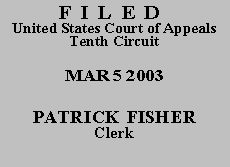

Plaintiff - Appellee,
v.
FERNANDO OLVERA-GARCIA, also known as Alberto Gonzalez,
Defendant - Appellant.
Plaintiff - Appellee,
v.
FERNANDO TORRES-MARQUEZ,
Defendant - Appellant.
Plaintiff - Appellee,
v.
HUMBERTO URIBE-RAMIREZ,
Defendant - Appellant.
In these three cases, defendants appeal from the denial of their motions to modify their criminal sentences under 18 U.S.C. § 3582(c)(2) based on a subsequent change in the sentencing guidelines. The district court denied the motions on the merits. Because each appellant was sentenced in accordance with a plea agreement specifying an offense level, the district court should have dismissed without reaching the merits.
Each of these defendants pleaded guilty to reentering the United States illegally as a deported alien previously convicted of an aggravated felony, in violation of 8 U.S.C. § 1326(a)(1), (2), and (b)(2). At the time they were sentenced, USSG § 2L1.2(b)(1)(A) called for a sixteen-level increase for a defendant previously convicted of an aggravated felony. Effective November 1, 2001, however, the Sentencing Commission promulgated Guidelines Amendment 632, which amended § 2L1.2(b)'s aggravated-felony enhancement to provide for an increase of eight to sixteen levels according to the seriousness of the earlier aggravated felony. See USSG Supp. to App. C at 224-25 (Nov. 1, 2001); USSG § 2L1.2(b) (Nov. 1, 2001). In response, each of these defendants filed a pro se motion to modify his sentence under 18 U.S.C. § 3582(c)(2), arguing that Amendment 632 had lowered the authorized term of imprisonment. The district court denied each motion on the merits, and each defendant appealed. We review the district court's determinations de novo. See United States v. Smartt, 129 F.3d 539, 540 (10th Cir. 1997).
The presentence report calculated defendant's criminal history category at IV and his offense level at twenty-one, which included the sixteen-level increase under § 2L1.2(b). Defendant entered into a plea agreement pursuant to Fed. R. Crim. P. 11(e)(1)(C), however, under which he agreed to be sentenced at an offense level of seventeen. The sentencing court accepted the plea agreement and sentenced defendant within the stipulated range.
When a defendant enters into a valid plea agreement pursuant to Fed. R. Crim. P. 11(e)(1)(C), "he may not seek a reduction in his sentence via 18 U.S.C. § 3582(c)(2). United States v. Trujeque, 100 F.3d 869, 869 (10th Cir. 1996). Defendant has neither argued nor demonstrated that his Rule 11(e)(1)(C) plea agreement is invalid. As a result, the district court should have dismissed defendant's § 3582(c)(2) motion without addressing the merits of his argument regarding Amendment 632.
The presentence report calculated defendant's criminal history category at III and his offense level at twenty-one, which included the sixteen-level increase under § 2L1.2(b). Defendant entered into a Rule 11(e)(1)(C) plea agreement, however, under which he agreed to be sentenced at an offense level of seventeen. The sentencing court accepted the plea agreement and sentenced defendant within the stipulated range.
As in No. 02-2066, this defendant has neither argued nor demonstrated that his Rule 11(e)(1)(C) plea agreement is invalid. Therefore, the district court should have dismissed defendant's § 3582(c)(2) motion without addressing its merits. See Trujeque, 100 F.3d at 869.
The presentence report calculated defendant's criminal history category at IV and his offense level at twenty-one, which included the sixteen-level increase under § 2L1.2(b). Defendant entered into a Rule 11(e)(1)(C) plea agreement, however, under which he agreed to be sentenced at an offense level of seventeen. The sentencing court accepted the plea agreement and sentenced defendant within the stipulated range.
As in Nos. 02-2066 and 02-2079, this defendant has neither argued nor demonstrated that his Rule 11(e)(1)(C) plea agreement is invalid. As a result, the district court should have dismissed defendant's § 3582(c)(2) motion without addressing its merits. See Trujeque, 100 F.3d at 869.
In each of these cases, we VACATE the district court's merits decision and REMAND with instructions to dismiss defendant's motion. The mandate shall issue forthwith.
Entered for the Court
Circuit Judge
*. This order and judgment is not binding precedent, except under the doctrines of law of the case, res judicata, and collateral estoppel. The court generally disfavors the citation of orders and judgments; nevertheless, an order and judgment may be cited under the terms and conditions of 10th Cir. R. 36.3.